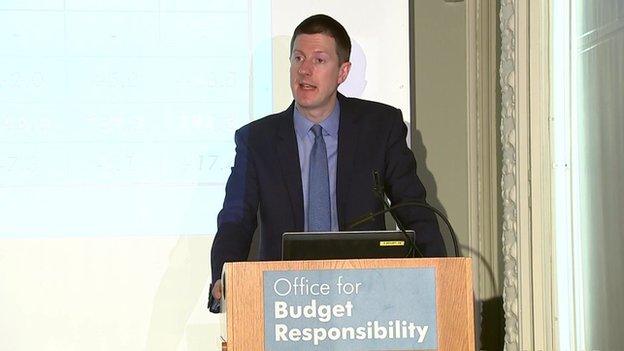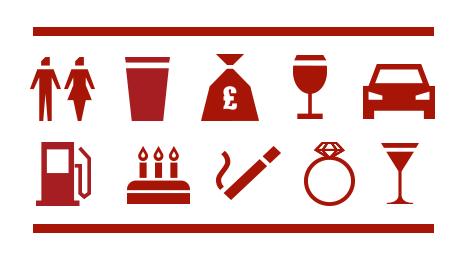Headline numbers: Feeling the OBR's pain
- Published

You have to feel the Office for Budget Responsibility's (OBR) pain.
The OBR is the independent body set up in 2010 to make economic and fiscal forecasts based on what the government decides to do in its Budgets and Autumn Statements.
If you had two major pieces of work to do each year, you would not decide to do one in December and one in March, but that's what the OBR has to do.
In its report, external accompanying the Budget it complained that its already tight timetable had been made harder by government departments handing in their homework at the last minute.
"We were not given details of costings for a large proportion of significant policy measures until just before our deadlines," the report said.
Now, this ranks as a relatively minor whinge, but the gloves came off for the complaints in the OBR's news conference.
The trouble is, the OBR has to make forecasts based on how much it thinks the government is going to spend in years for which there are not yet detailed departmental spending plans, which currently applies to the period after April 2016.
'Complex and opaque'
It does this based on what's called the medium term spending assumption. And OBR chairman Robert Chote is not best pleased about it.
"Back in 2011 we could explain the government's spending assumption in our EFO [economic and fiscal outlook] in just 29 words," he told reporters.

Users of the BBC News app tap here, external for the Budget Calculator.
"It has now become so complicated that it requires 428 words."
If you read through it, it is pretty difficult to get your head round, with lots of detail about whether or not it is taking into account the "life-length of roads" and "depreciation for Network Rail".
And the problem is that what the government puts in its spending assumption is really important. At the moment, we only have detailed spending plans for the first year of the next parliament. We're relying on the spending assumption to work out spending in the other four.
"It's unfortunate that this assumption has become so complex and opaque because in an era of fiscally neutral Budget and Autumn Statement scorecards it's become the main mechanism by which the government achieves the outcomes for the Budget balance that it wants to see across the forecast," Robert Chote said.
The OBR report shows that the impact of changes to Budget measures are absolutely dwarfed by the effect of changes to the spending assumption.
In other words, most of the movements in the forecast come from a complicated set of assumptions for years in which there are no proper spending plans.
And to have the head of the OBR condemning parts of the process as "opaque" is a real problem for the government, which created the OBR to become more transparent and prevent governments from fiddling the figures.